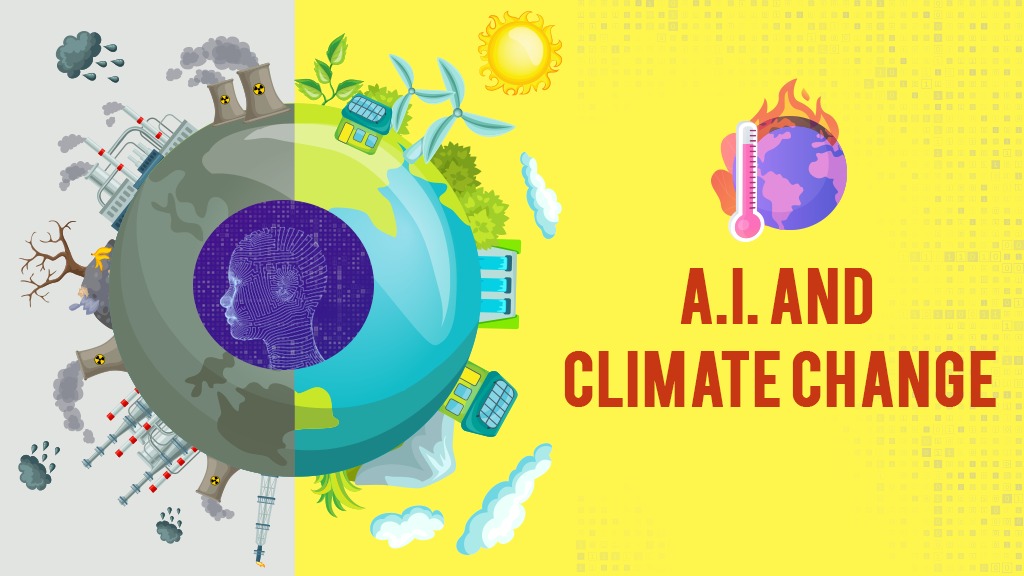
It has been said that AI has existed from 1950s, however, the rapidly changing technology is signaling towards significant improvements in the areas of predictive analysis. One of our articles has covered how AI will be helpful in providing for cleaner fuels and better utilization of renewables. This article argues that AI could radically improve the assessment of climate change. In the contemporary world, we see that climate impact assessments rely on global scale models which are then deconstructed or ‘downscaled’ for regional and local assessments. This process in itself is very complex as multiple factors are plied together such as location of people and other conditions. However, AI will assist in making local and regional evaluations by connecting imperfect downscaling process with real information about actual aspects. These actual aspects often include insurance claims, weather extremes, arrival of migrants, observed outbreaks, and the spread of disease. Furthermore, AI could compare climate models in terms of their performance like forecasting temperature, precipitation, and ice cover. These comparisons have been accurate in predicting which models could work best in what kind of conditions. Brookings report has argued that machine feedbacks have improved model quality in both meteorology and climate modeling. These were also used by Intergovernmental Panel on Climate Change (IPCC) in conducting climate-science assessments to evaluate whether climate modeling community agrees and disagrees.
Many scientists are inculcating machine learning code into the climate models to predict more details about the climate than traditional computers do. For now the focus is on clouds and thus, such models are often called as ‘Cloud Brain’ although the technique is used in predicting small scale phenomena. However, the so called ‘cloud brain’ needs training as it often gets confused when given a more stranger world or environment to identify.
The artificial intelligence can majorly aid in designing policies adaptation when it comes to climate change. As argued by Yangyang Xu, Ramanathan and Victor that adaptation is a two-pronged process requiring firstly, “They need to know what the potential local impacts will be at the scales of counties to cities. Some of this information could be gleaned by combining fine-resolution climate impact assessments with artificial intelligence for ‘big data’ analysis of weather extremes, health, property damage and other variables. Second, policymakers need to understand uncertainties in the ranges of probable climate impacts and responses”. Therefore, big data analyses can layout the plan for adaptation through climate change.
The rise in temperature and sluggish relationship between changing concentration and accumulated CO2 in the atmosphere indicate that we are inching towards a rapidly degrading climate system. It has been predicted that future will experience damage in the form of extreme events. The adaptation strategies with the help of AI will be crucial in this regard. In the times of extreme times, we will only have a portfolio of options each having a value of its own. Machine learning will be vital in assessing those values more rapidly. AI could predict which resources can be actually utilized for adaptation and thereby, will lead to holistic welfare of society. As there is a high probability of uncertainty, AI will most importantly avoid the incidences of mis-calculation and mis-allocation especially when adaptation will take a massive call on resources. Moreover, AI could democratize qualitative climate assessments by providing geography specific response to environmental concerns. It has been argued that climate change harms general public when universal response system is translated into regional responses. Often the local authorities lack technical expertise and the responses system is not geography specific. Therefore, AI will not only help in reducing the cost of building a location specific response system but will also democratize the quality of climate assessment. In this manner, AI can aid in creating a response system that is empathetic towards marginalized and poor sections of the society. As Brookings report claims, “From a climate perspective, then, the AI revolution could end up being a vitally important part of assuring and promoting economic development amongst the world’s least well off—a topic that another paper in this series explores”.
In terms of energy efficiency, AI has the potential to make energy markets powerful by expanding and unlocking new supplies, reducing transaction costs, and make it easier for users to for specifying what they want to buy in the market. Many private companies have already started integrating AI with various energy initiatives. For example, Microsoft’s AI for Earth is investing an ample amount of money of making smarter homes by using energy for heating and cooling and also, in making maps for precision conservation efforts. A report from Yale 360 argues, “A team at the National Energy Research Scientific Computing Center in Berkeley is using deep learning to analyze the vast reams of simulated climate data being produced by climate models, drawing lines around features like cyclones the way a human weather forecaster might do”.
This piece is written by Manisha Chachra




